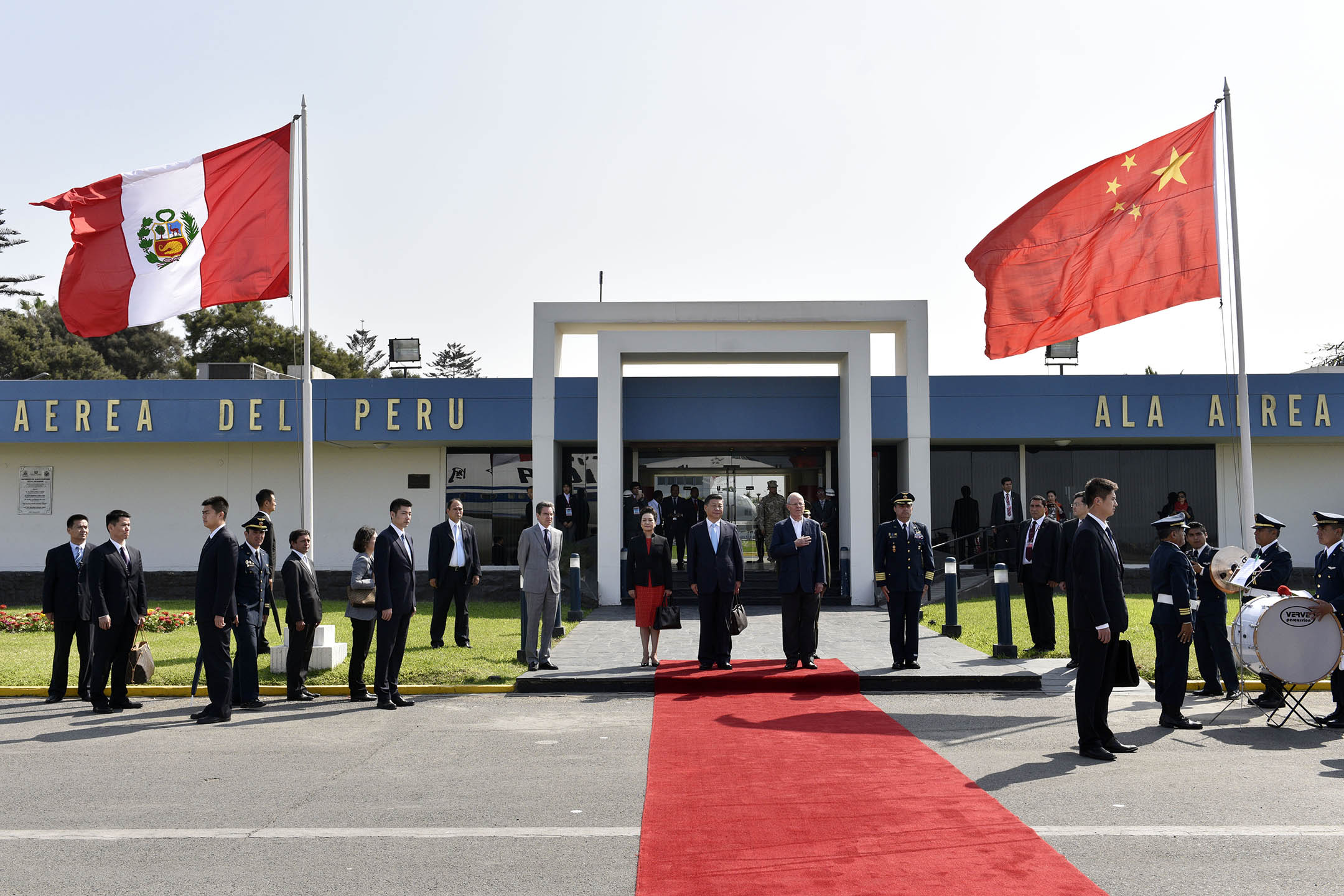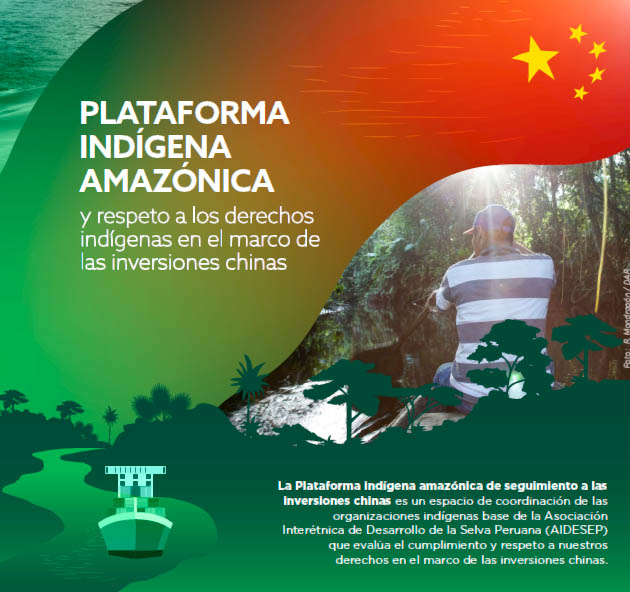Tuesday, October 20th, 2021.- The Monitoring Amazonian Indigenous Platform for Chinese Investment in Peru has presented to the Embassy of China in Peru and to The Ministry of Foreign Trade and Tourism (MINCETUR) an environmental chapter proposal to be included in the renegotiation of Peru-China FTA, currently in process.
The proposal importance lies in that important Chinese investments are settled or bordered with indigenous territories and high biological diversity areas. It should be remembered that China is Perú´s main trading partner and has an accumulated direct investment of US$ 19567 millions in our country between 2006-2018, of which 80% are related to mining and hydrocarbon sectors.
Proposals
The Platform, composed of the indigenous organizations ORPIO (Regional Organization of Indigenous Peoples of the East), CORPI (Regional coordinator of indigenous peoples of San Lorenzo) (Loreto), ORAU (Regional Organization AIDESEP Ucayali) (Ucayali) and COMARU (Urubamba River Machiguenga Council) (Cusco), with the support of AIDESEP, presents 11 basic negotiation axes, among which it can be highlighted the incorporation of the commitment to not promote trade or investment through the weakening, reduction or non-application of the environmental legislation of both countries. This is particularly important in the context of policy responses and economic reactivation in the face of COVID-19.
Likewise, it is being requested that, as part of the environmental chapter, commitments to cooperation are incorporated in sustainable forest management, oversight of the wood origin and route, forest management of the indigenous communities, and measures to fight wildlife illegal trade, among others.
It is essential that a commitment to respect prior consultation and self-determination be included in the FTA with China as a mechanism for intercultural dialogue, which also allows greater sustainability in investments», emphasizes Lizardo Cauper, president of AIDESEP and member of the Platform, adding that the negotiation process should include a space for the contributions of indigenous organizations and civil society.
“We already have a dangerous history of Chinese investments such as Lot 58, where prior consultation has been omitted; or the Amazon Waterway, with a low compliance with consultation agreements and a high number of observations to its environmental study, that is why an environmental chapter in the FTA is key as a protection mechanism for our peoples.
Additionally, it is being requested to promote mechanisms that contribute to introduce in the Chinese market products and services made by the Andean and Amazonian communities that are based on the sustainable use of the biological diversity and traditional knowledge.
Also, it is being asked to include the commitment to human rights respect and, specifically, for the protection of environmental advocates, among other proposals.
On the other hand, Vanessa Cueto, vice president of DAR, an allied organization of the Platform, points out that the environmental chapters are a good practice that both Peru and China have used «trade agreements of the size of the FTA that we signed with the United States or the Union European; or those that China has signed with other countries, including South America, such as Chile, contain environmental chapters «.
«It should also be taken into account that sustainability is one of the fundamental principles promoted by the memorandum of understanding with which Peru adhered to the Chinese One Belt One Road Initiative», highlights Cueto.



